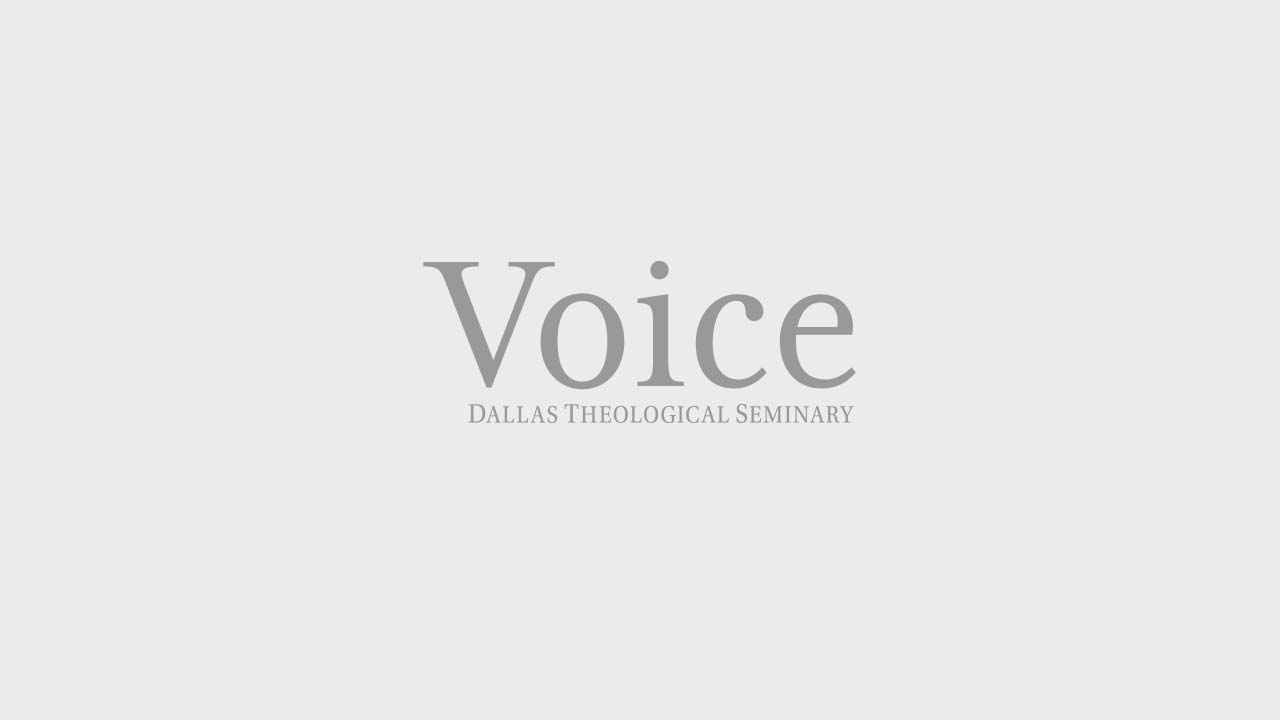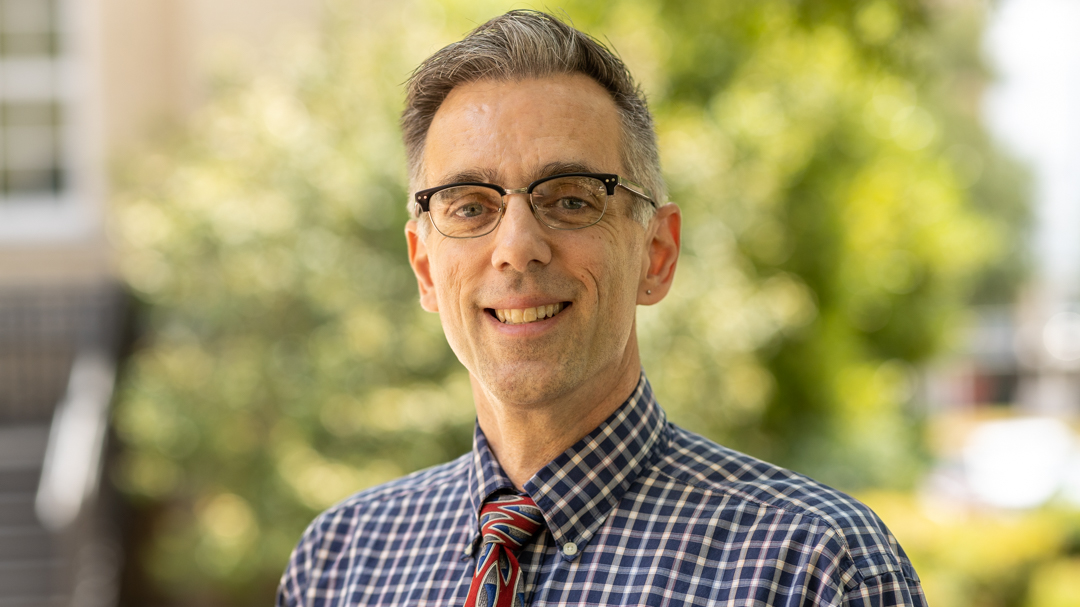POIEMA: An Interview with Dr. Darrell L. Bock

Our summer issue’s theme is engaging outsiders. Let’s consider what it means that “we are his workmanship, (poiema) created in Christ Jesus for good works,” (ESV) to lay a foundation for how we engage outsiders to the faith.
How is poiema, “workmanship,” used in the New Testament?
It refers to something shaped and crafted by someone—like a piece of art.
We are people whose rebirth is shaping us to be reconnected to the image of God. It’s an attempt to correct the defects that came because of sin. It’s important to tell the gospel story starting not from Genesis 3 but from Genesis 1. Genesis 1 tells us who we are, and salvation tells us where God is taking us. He is taking us back to an act of restoration. In the ancient Near East context, the idea of the image of God refers to the way a statue reflects a likeness of the person in whose image it was made. We are designed as the sons and daughters of God, to reflect the shape of God’s character. So poiema is a discipleship term. The shaping starts, and it doesn’t end until we get to eternity.
Can you unpack the phrase “We are his workmanship (poiema), created in Christ Jesus for good works”?
“Workmanship” is very good word. So is “craftsmanship.” God is shaping us into a different kind of person than what we were. But it’s a process. We are his poiema, created in Christ Jesus for good works. As evangelicals, we sometimes hesitate to talk about “good works,” but good works are part of what God is hoping for from us as he reshapes us. The fruit of the Spirit is nothing but the good works of a solid character.
Talk about the fruit of the Spirit.
The fruit of the Spirit is fundamentally relational. You can give short shrift to the relational side of all this. He is trying to get us to think correctly, but the goal is to be relationally robust and to reflect the character of God in our interactions with one another. The beauty of the gospel is that God approached us when our backs were turned to Him. We should never forget that—especially when we’re engaging with someone who has turned away from God.
Can you talk about this passage in Colossians that tells us we are to be heavenly minded?
Colossians 3:1–2 (NIV): “Since, then, you have been raised with Christ, set your hearts on things above, where Christ is, seated at the right hand of God. Set your minds on things above, not on earthly things.”
We are to be so heavenly minded that we are earthly good. What is highlighted in this passage are the virtues of how I’m relating to people. We’re back in this relational place. This is the ethical core of the Bible. Go back to the Ten Commandments. The first tablet concerns how I’m relating to God, and the second how I’m relating to others. But let’s simplify it even further. Let’s go to the Great Commandment, a single commandment with two parts: Love the Lord your God with all your heart, mind, and soul. And love your neighbor as yourself. So the idea is that how I think about God and how I relate to God should affect how I’m relating to others.
If we picture this as an arrow indicating direction of motion, the arrow ends up pointing not toward who I am and what I’m doing, but it’s an arrow that pushes outward. It’s directed out to God, and at the same time, it’s directed toward others. That redirection away from the self-focus we often have is fundamental to what God is doing with us when He saves us, and it’s preparing us for those good works because those good works are relational and aimed at other people.
If I think rightly, but relationally I’m off—then I’m off! The danger of “thinking rightly” is that if you’re not careful, it can cut you off from people. Right thinking should set you up to relate to people in a better way. So if it doesn’t have that dimension, then something’s missing.
How would you say this influences how we view evangelism?
One of the challenges of evangelism is that you’re trying to help people create categories they may not already have. A person who is an atheist or agnostic doesn’t have a category for God. So how will you create a category for that person which opens up an awareness of God? I can appeal to them at an intellectual level, but usually what happens is that they see something about your character and your life from the way you are relating to them, and that catches their attention.
Dr. Darrell L. Bock is Executive Director of Cultural Engagement and Senior Research Professor of New Testament Studies at Dallas Theological Seminary. He is the author of more than forty books and serves on the boards of Wheaton College and Chosen People Ministries.
Our summer issue’s theme is engaging outsiders. Let’s consider what it means that “we are his workmanship, (poiema) created in Christ Jesus for good works,” (ESV) to lay a foundation for how we engage outsiders to the faith.
And this is a spiritual battle, too, right?
Yes, this is a spiritual battle (Ephesians 6). Because it’s a spiritual battle and Satan is a master of deception, the people we are talking to—outsiders—are caught in a series of beliefs, with two things they don’t realize. First, they don’t realize that they’re caught in a misreading. And second, they don’t even believe in the forces that create that misreading.
There is a big difference between sitting across the table from an outsider to the faith and saying, “I need to crush what you believe,” and instead saying, “I actually understand why you are where you are, and it’s the result of forces you don’t even recognize.” Sometimes the way forward is not through the head, but through the heart. We’re trying to emphasize that, in the end, the gospel is an invitation to people to consider something that perhaps they haven’t thought about before. Our role as ambassadors is to plead with people that there is a different way to live and a different way to go about life. There is another place and another way of life that is different from what’s going on around you.
God is committed to restoration, because restoration is the way to life. Many people don’t understand this. When I care about people well, I’m doing pre-evangelism. I am standing up for the gospel. When we separate that activity from the living out of the gospel, we risk removing one of the most powerful witnesses we have. When estranged groups function together well,
Any advice for new DTS graduates today?
Develop the ability to invite. We need to be reminded, “Greater is he that is in you than he that is in the world” (1 Jn 4:4 ASV). You can be confident knowing that when you invite outsiders to the faith today, you are inviting people to a great experience they are not having yet.
About the Contributors

Darrell L. Bock
Dr. Bock has earned recognition as a Humboldt Scholar (Tübingen University in Germany), is the author or editor of over 45 books, including well-regarded commentaries on Luke and Acts and studies of the historical Jesus, and works in cultural engagement as host of the seminary’s Table Podcast. He was president of the Evangelical Theological Society (ETS) from 2000–2001, has served as a consulting editor for Christianity Today, and serves on the boards of Wheaton College, Chosen People Ministries, the Hope Center, Christians in Public Service, and the Institute for Global Engagement. His articles appear in leading publications, and he often is an expert for the media on NT issues. Dr. Bock has been a New York Times best-selling author in nonfiction; serves as a staff consultant for Bent Tree Fellowship Church in Carrollton, TX; and is elder emeritus at Trinity Fellowship Church in Dallas. When traveling overseas, he will tune into the current game involving his favorite teams from Houston—live—even in the wee hours of the morning. Married for 49 years to Sally, he is a proud father of two daughters and a son and is also a grandfather of five.

Kraig W. McNutt
Kraig McNutt is Executive Director of Marketing & Communications for DTS. He studied philosophy at Indiana University (BA) and holds degrees from the University of Kentucky (MSLS) and Grace Theological Seminary (MDiv). He is also an author and historian on the American Civil War.

Neil R. Coulter
Neil R. Coulter completed degrees in music performance and ethnomusicology from Wheaton College and Kent State University. He and his family lived in Papua New Guinea for twelve years, where Neil served as an ethnomusicology and arts consultant for Wycliffe Bible Translators. In 2015, he helped design and launch the PhD in World Arts at Dallas International University. He teaches doctoral courses in theory and ethnography at DIU’s Center for Excellence in World Arts. At DTS, he teaches about art, literature, film, and theology, and he is senior writer and editor of DTS Magazine. Neil is married to Joyce, and they have three sons.

